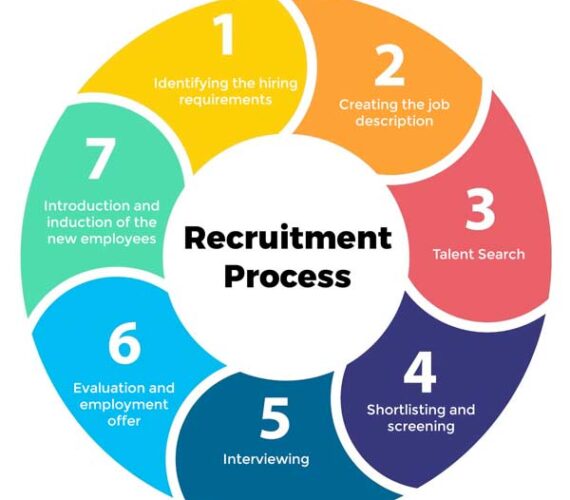
- Job Posting and Sourcing:
- Identify the need for a new position.
- Create a detailed job description outlining responsibilities, qualifications, and other relevant details.
- Post the job on various platforms, including the company’s website, job boards, and social media.
- Application Review:
- HR professionals or hiring managers review incoming resumes and applications.
- Shortlist candidates based on their qualifications and experience.
- Some companies use applicant tracking systems (ATS) to manage and filter applications.
- Screening:
- Conduct initial screenings, often via phone or video calls, to assess the candidate’s communication skills, general fit, and interest in the position.
- Verify basic qualifications and ensure alignment with the company’s values.
- Interviews:
- Schedule and conduct in-depth interviews with shortlisted candidates.
- Different interview rounds may assess technical skills, cultural fit, and behavioral competencies.
- Involve various stakeholders, such as team members and department heads, in the interview process.
- Assessment and Testing:
- Some positions may require candidates to complete skills assessments, tests, or assignments to evaluate their abilities.
- Technical roles often include coding challenges or practical exercises.
- Reference Checks:
- Contact the candidate’s previous employers or references to verify their work history, performance, and character.
- Job Offer:
- Extend a formal job offer to the selected candidate.
- Negotiate terms such as salary, benefits, and start date.
- Onboarding:
- Facilitate the new employee’s transition into the company.
- Provide orientation and necessary training.
- Introduce the new hire to their team and key stakeholders.
- Probationary Period:
- Some companies have a probationary period during which the employee’s performance is closely monitored.
- Feedback sessions and performance reviews may occur during this time.
- Integration and Feedback:
- Ensure the new employee integrates well into the team and company culture.
- Collect feedback from both the employee and the hiring team to improve the recruitment process.
Throughout the recruitment process, effective communication with candidates is crucial. Providing a positive candidate experience, regardless of the outcome, helps maintain the company’s reputation and attractiveness to potential future hires.
